By Lucy Komisar
Feb 25, 2020
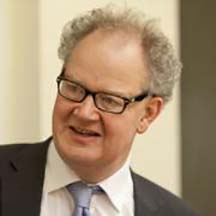
Edward Fitzgerald, QC, is on the defense team at the Julian Assange extradition hearings. He is co-head of London’s Doughty Street Chambers and head of its Extradition section. Seems appropriate.
I wrote in November of my concern that several people connected to chambers with members working for Assange were also working for Assange‘s persecutor, the U.S. government. And that several were public supporters of a key U.S. asset in the promotion of Russiagate and Russophobia, the conman and fraudster William Browder.
I was lectured by social media posters on the fact that chambers are not law firms with direct involvement in cases, but rather like taxi dispatchers, matching lawyers with clients who call for services.
Now consider this Doughty Street publication from 2015. Fitzgerald‘s name is at the top. He writes, “Dear Colleague, Welcome to the first edition of the Doughty Street Chambers Extradition Bulletin.” He explains this will provide useful information to British lawyers. So, this is presented not by an independent chambers lawyer, but by the chambers itself.
Up front is a dig at a useful enemy, and then we know where it is going: “Russia has always been a state which generates work for lawyers, and Malcolm Hawkes considers their use (or abuse?) of Interpol Red Notices. We hosted a seminar on this very topic last week.” He is working on an issue, Russian “abuse” of red notices, that concerns Doughty Street Chambers enough to hold a seminar on it.
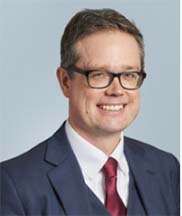
And then Fitzgerald presents the expert, lawyer Malcolm Hawkes, “a fluent Russian speaker who has lived and worked in Moscow,” taking note of “the growing concern that Interpol and its Red Notice scheme are being abused by states. In particular, he looks at Russia’s track record in this area.”
The rest is a familiar repetition of the fabrications of tax fraudster Browder, a key U.S. government Russiagate asset, none backed by evidence and a few ridiculously wrong, such as saying an event in 2005 was caused by an event in 2008. Hawkes is either incredibly sloppy or he just takes bad dictation.
Hawkes starts out with Browder‘s first fabrications: “When the head of Hermitage Capital, William ˜Bill‘ Browder uncovered an alleged £230m [sic] tax fraud in Russia committed by tax officials themselves, the response of the Russian authorities was to bar him from the country and to imprison one his lawyers, Sergei Magnitsky.”
Now, that is a new one. Browder always says Magnitsky uncovered the fraud. Did he tell Hawkes that he, Browder, uncovered it? Evidence?
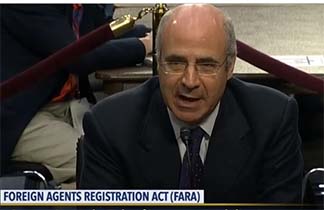
Browder told the U.S. Senate Judiciary Committee in 2017, “I hired the smartest Russian lawyer I knew, a 35-year old named Sergei Magnitsky. [Lie, Magnitsky was an auditor, not a lawyer and handled Browder’s accounting since 1997. See below. I asked Sergei to investigate the purpose of the raids and try to stop whatever illegal plans these officials had. Sergei went out and investigated.
He came back with the most astounding conclusion of corporate identity theft: the documents seized by the Interior Ministry were used to fraudulently re-register our Russian investment holding companies to a man named Viktor Markelov, a known criminal convicted of manslaughter. After more digging, Sergei discovered that the stolen companies were used by the perpetrators to misappropriate $230 million of taxes that our companies had paid to the Russian government in the previous year.”
(An aside, Markelov testified that the person who gave him the Hermitage shell company financial documents to do the fraud was one “Sergei Leonidovich.” As in Sergei Leonidovich Magnitsky. But that‘s another story.)
The next line shows how little Hawkes knows! The tax refund fraud was in December 2007 and was revealed in 2008. It was first reported by Russian Rimma Starova in April 2008, indicated by Browder‘s Hermitage Fund‘s internet post, since taken down but preserved by the Wayback Machine.
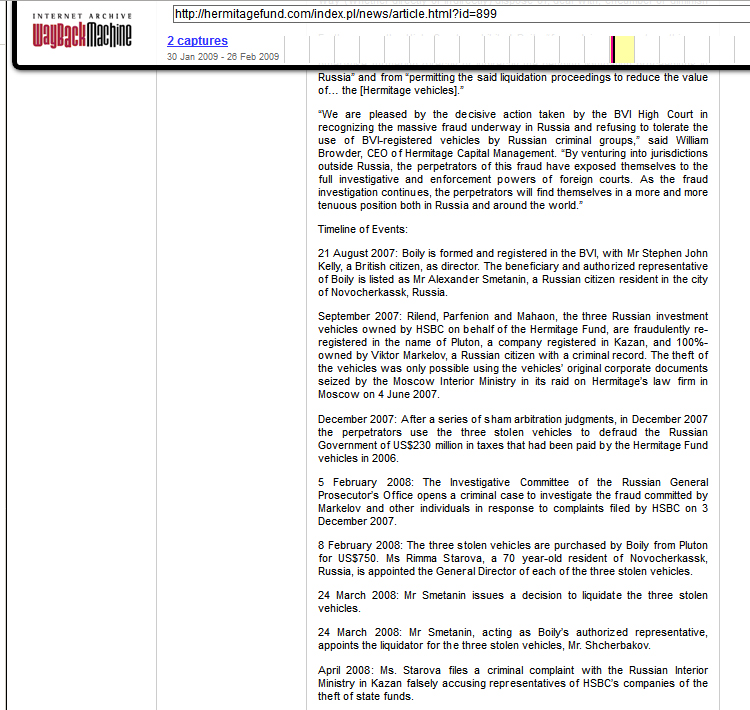
Then Browder gave the story to the NY Times and Vedomosti, which both reported it in July 2008. Magnitsky didn‘t mention this in testimony till October.
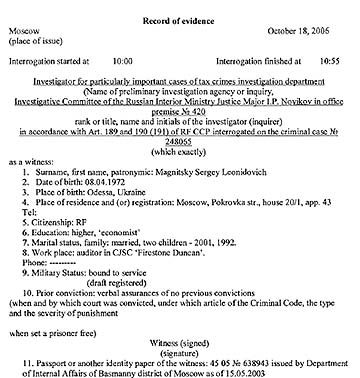
It‘s public knowledge that Magnitsky was not a lawyer for Browder or anyone else. He was an accountant, as listed on the first page of his three testimonies: “auditor.” Browder had to admit (in this video) under oath at U.S. federal court that Magnitsky didn‘t go to law school or have a law decree.
But now this! How was the ban on Browder the result of his uncovering the $230 million fraud? (It was 230million in dollars, not pounds, but that‘s a minor error here.) Browder was refused a reentry visa in November 2005, about two years before the tax refund fraud occurred! A very obvious and sloppy mistake.
Magnitsky was first interrogated about Browder‘s Hermitage multi-million tax evasion in October 2006, more than a year before the tax refund fraud. And it was the basis for his November 2008 arrest.

The Browder cheat numbers started at $40 million, more evidence took it to $70 million, now it reaches $100 million. That included massive tax evasion by claiming non-existent employees as disabled, non-existent investments as investing in the region, claiming a 5% tax via the Cyprus double-taxation treaty when it was based only on not-allowed pass-through shells, buying Gazprom shares through Russian shells when foreigners were banned from buying them in Russia. Hawkes doesn‘t comment on any of that.
Hawkes says: “Held in prison for a year in appalling conditions and deliberately denied medical treatment, in an apparent attempt to force him to deny the allegations, Mr. Magnitsky was beaten to death by prison guards on 16 November 2009.”
Indeed, Magnitsky lived in the same bad conditions as others in the decrepit prison. He got terrible, incompetent medical care, which Russian investigators have acknowledged, even detailed, but there is no evidence it was deliberate. The bad conditions and care are described in the report by the Moscow Public Oversight Commission, which Browder posted. Although he added a forged paragraph, claiming Magnitsky accused Interior Ministry investigators, but that’s another story. See the graf in his post, top page 3, which doesn’t exist in the POC post on Pacer, U.S. court system, linked above. At some point, cataloging Browder’s forgeries gets redundant.
An attempt to get Magnitsky to deny which allegations? He had been detained on the Hermitage tax fraud, had noted the Russian Treasury tax refund fraud in his October 2008 testimony, but never accused anyone by name. Browder has lied about that, saying he accuses officials, but he can‘t provide evidence. Forgeries don’t count.
Hawkes writes, “Oleg Silchenko led the police investigation and is alleged to have personally overseen Mr. Magnitsky‘s torture and ill-treatment.” Alleged by whom? Browder. Of course, evidence of “torture” doesn‘t exist, though Browder claims it all the time. Can Hawkes provide it?
Hawkes says, “In a macabre Russian legal first, in March 2013, Mr. Magnitsky was posthumously tried and convicted of offences of tax evasion; Mr. Browder was also tried and convicted of the same offences in absentia.”
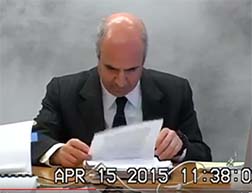
This Russia expert lawyer appears not to know that it is not a “legal first,” but standard to allow relatives of accused deceased persons to request a trial to clear their names. Here is Browder in a 2-minute video from his deposition confronted like a deer in the headlights with the fact that the case against Magnitsky was dismissed after he was found guilty. The jail sentence referred only to Browder.
Hawkes says, “Thereafter, in May 2013, Russia issued a Red Notice in Bill Browder‘s name; the furore around the Magnitsky case led Interpol to convene a special meeting after which it announced it would delete the request. Russia then accused Mr. Browder of further offences in another Red Notice request; this too, was rejected, on the grounds that it was politically-motivated.”
“Rumours continue to swirl about future Red Notice requests from Russia in Mr. Browder‘s name, yet no-one involved in the arrest, torture and murder of Mr. Magnitsky has ever been prosecuted. Most notably, the chief investigator, Oleg Silchenko, has not merely been promoted and received awards for his work, despite being blacklisted by both the US and the EU, he continues to issue Red Notices in other cases, too.”

Translation: the U.S. government wields significant power and got Interpol to refuse to honor the Russians‘ request. So these blacklists are based on charges but no evidence or due process is provided to adhere to the West‘s vaunted “rule of law.”
The claims of “torture” and “murder” are without evidence. The Moscow Public Oversight Commission, the NGO which investigated Magnitsky‘s treatment and last days, talks about terrible conditions and failed medical care, but not that he was tortured or murdered. The Physicians for Human Rights in Cambridge, Mass, given 44 documents by Browder, including the POC report, came to the same conclusion.
Where does Hawkes get the evidence for his claims? Of course, Silchenko was blacklisted by the U.S. and EU based on Browder‘s fabrications. No reason for Russia, short of any evidence, to do the same.
Hawkes says, “Although Interpol can be praised for its stance regarding Mr. Browder, unlike many who are subject to such requests, he has the benefit of being a determined campaigner and both well-connected and wealthy. The fact the organization continues to accept Red Notice requests from Russia, authored by Mr. Silchenko at all is cause for serious concern.”
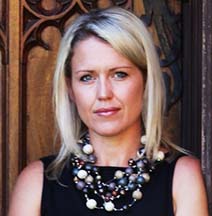
He means Interpol has not totally bowed to U.S./UK government dominance. Which is something to be said for it!
Doughty Street Chambers has some other key Browder acolytes.
Jennifer Robinson, another Assange lawyer from Doughty Street, acted for Paul Radu, a journalist and official of the Organized Crime and Corruption Reporting Project (OCCRP), which was being sued by an Azerbaijan MP. OCCRP is a Browder collaborator. Here is what Wikileaks said about OCCRP in 2016.
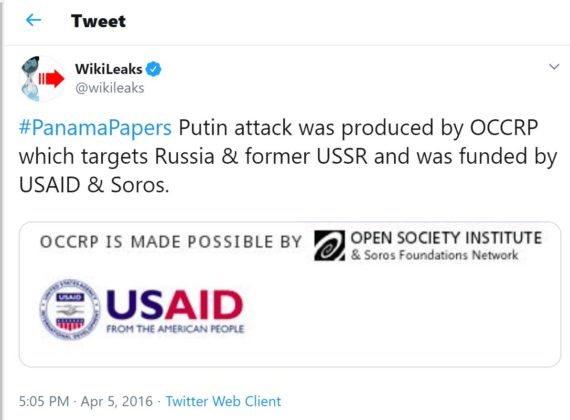
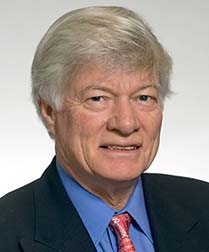
Geoffrey Robertson, founder of Doughty Street Chambers, is a longtime Browder / Magnitsky story promoter. He has pitched implementation of a Magnitsky Act in Australia and has served Browder in UK court.
Therefore, I am still concerned about the connection of Julian Assange‘s lawyers to Doughty Street Chambers, which presents to the British legal community and has not disavowed, the easily disproved fabrications of his U.S. government persecutor‘s prime Russiagate asset, William Browder.
I sent this article to both Fitzgerald and Hawkes and asked for comments. Perhaps they will look at the documents and admit that they were snookered by Browder. They won’t be the first!
Hawkes did not reply. Fitzgerald wrote:
Thank you for your email concerning the Extradition Bulletin issued in March 2015. I have drawn it to the attention of Malcolm Hawkes.
Yours sincerely,
Edward Fitzgerald QC


Pingback: Links 2/27/2020 - Business
Pingback: Links 2/27/2020 – Viral News Connection
Pingback: British lawyer Geoffrey Robertson and his fake Magnitsky story – The Komisar Scoop